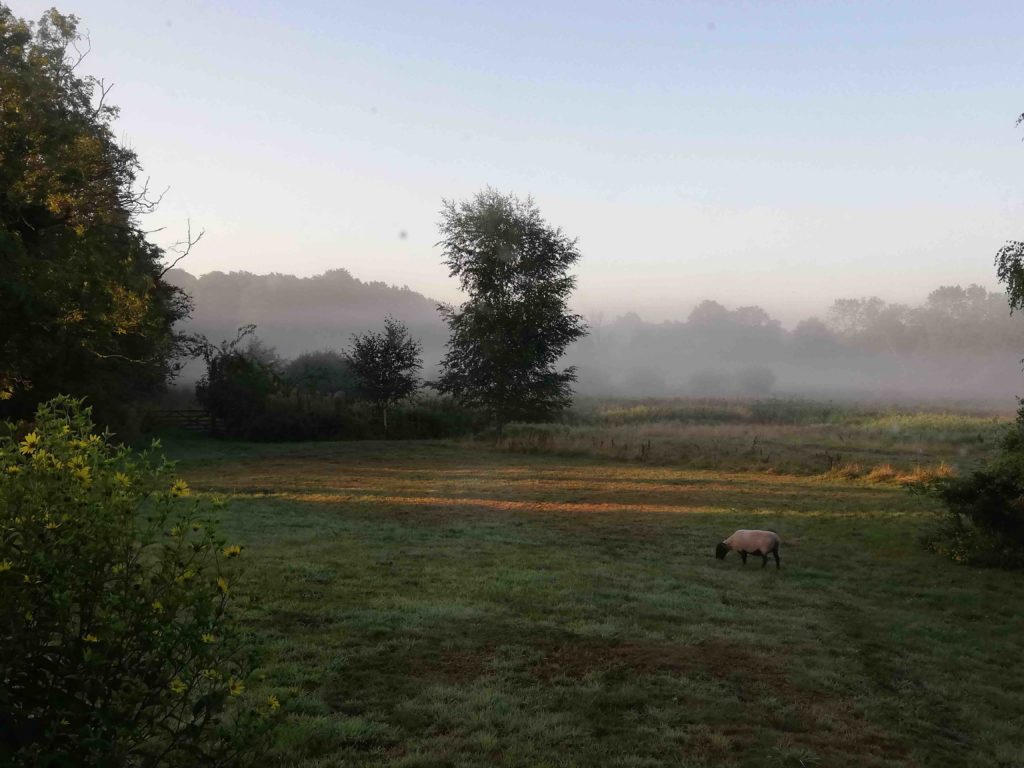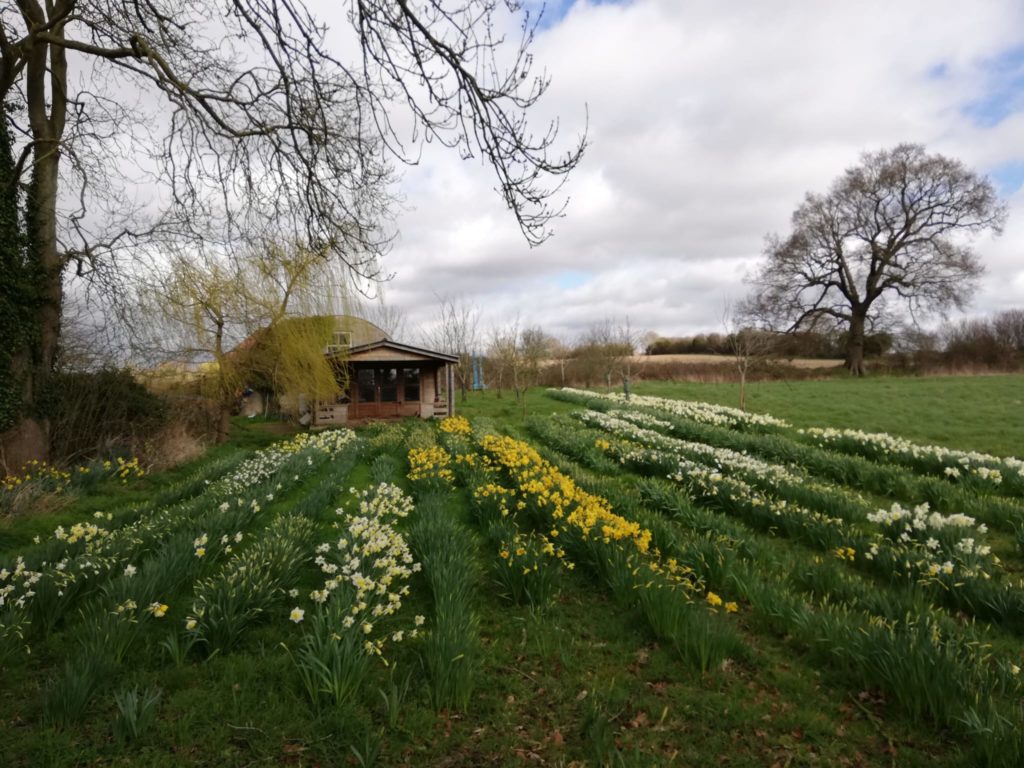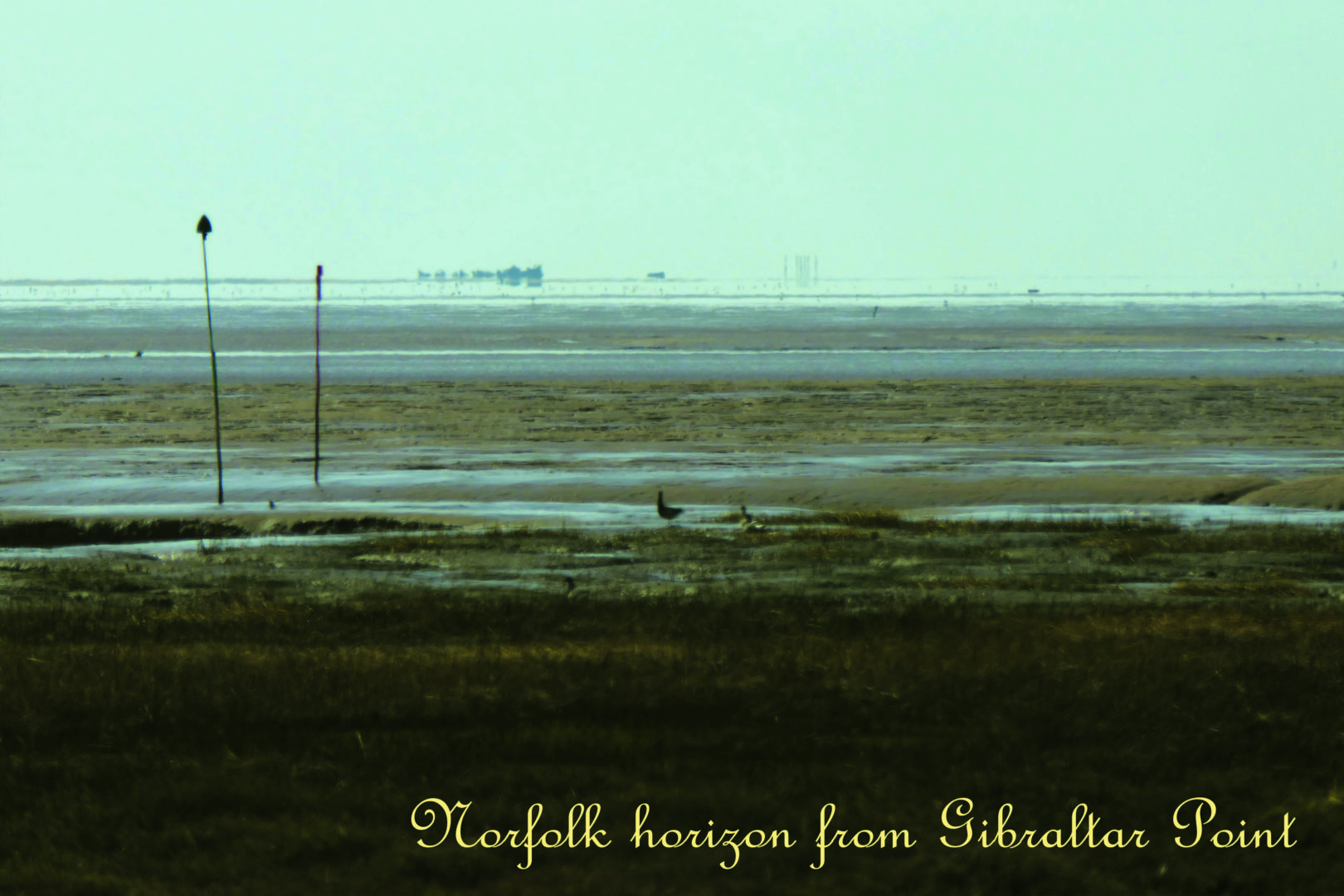Fluid Earth
Applications are open for Fluid Earth, the title of GroundWork Gallery’s fifth annual artist residency and exhibition programme for 2025. It builds on our track-record of environmental art residencies which have taken a strongly inter-disciplinary approach. We welcome broad and imaginative approaches to the subject.
The Fluid Earth GroundWork Residency runs overall from 4 August – 12 September. During this time, each selected artist is required to join in with a research week from 4-9 August, followed by a choice of venue for the production phase for 10 days.
Briefing notes are below here and further information about dates is on the application form.
Headline picture is Sea Wall Postcard by Sophie Marritt
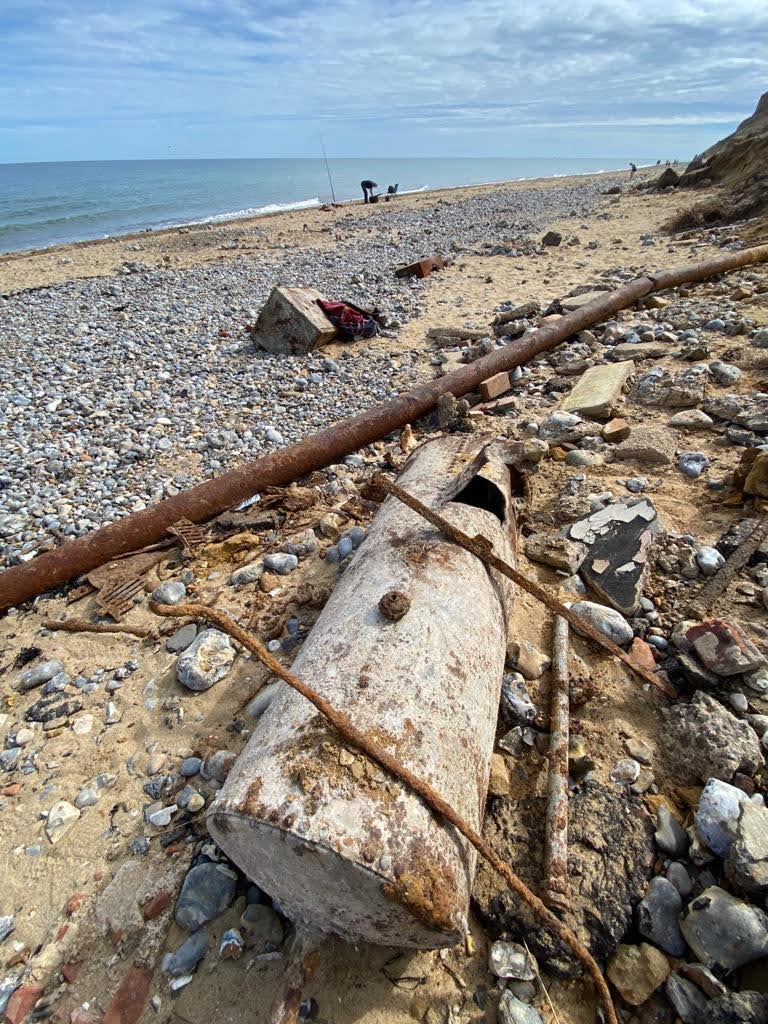
Above, Kelly Hill photo
Extractivism: the overarching theme
The overall concept for the residency up till now has been about extraction and extractivism: the removal of resources from the earth, whether natural or otherwise.
Extractivism describes an overarching attitude which legitimises removal as a default, as opposed to replenishing resources or thinking in terms of regeneration. This is often accompanied by an assumption that extraction is a permissible exercise without full consideration of the longer-term implications for sustainability, for pollution, or of ownership of the materials or environments affected.
The artists in residence have to date taken rigorous perspectives. They have been drawing attention to overconsumption and using resources with enormous sensitivity. They have highlighted little-known practices and properties of materials, minimizing or making effective use of waste products. Results of their work can be seen in the exhibition pages since 2020, the more recent ones being The Ground Beneath Our Feet, 2023 and Ground Up, 2024. Ground Water is also part of that theme.
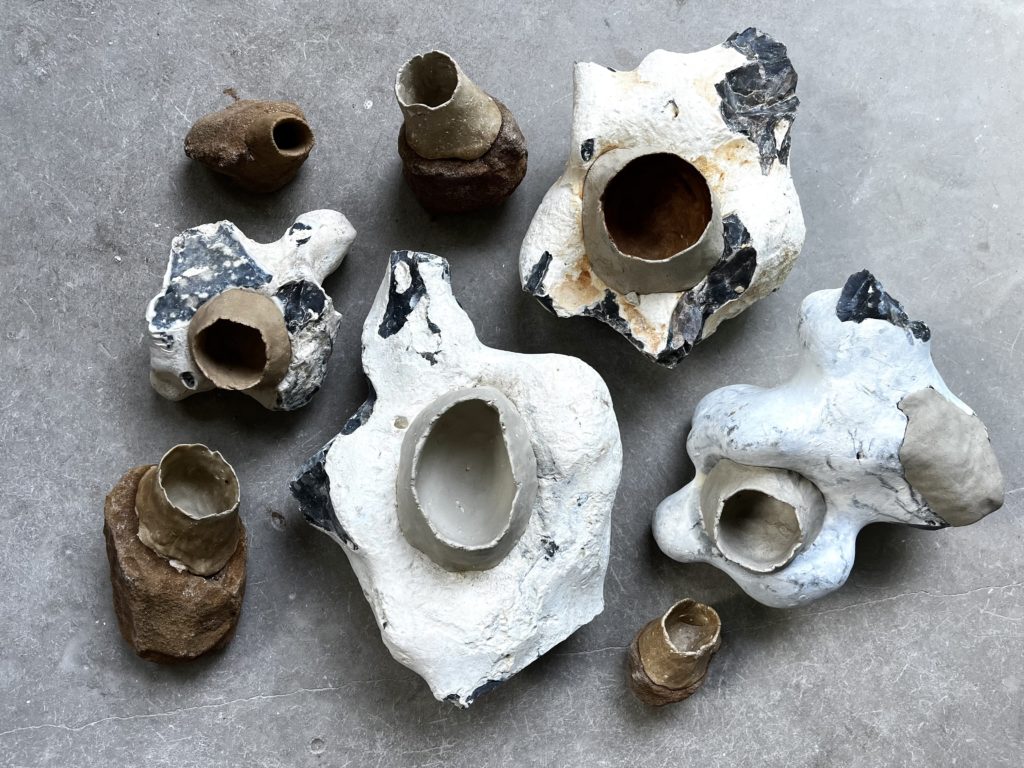
Above, work by Tamlin Lundberg, 2024
Fluid Earth 2025
While extractivism remains an important part of our underpinning focus for 2025, we find that there has been a growing interest in diverse human and broadly natural factors which we need to take into account if we are to consider the future of the planet in terms of justice, equality, equity, for people and for nature.
Indeed, we cannot consider the future of issues like nature recovery without considering how humans are both part of the problem and part of the solution. But also, that both the problems and solutions involve immense complexity and diversity and need to be approached creatively with that in mind.
It emerged during our GroundWork Network conference in 2024 that more and more people want to increase the variety of voices in the activity and conversations to learn how our communities understand and experience the environment.
See recordings here:
https://youtube.com/playlist?list=PLjudsZc5zx6iOmFZM7-Xy53X6XP17KyLb&si=xuSIA87CoTN6k9yc
So, for 2025 we want to raise some of these issues through our research and investigations.
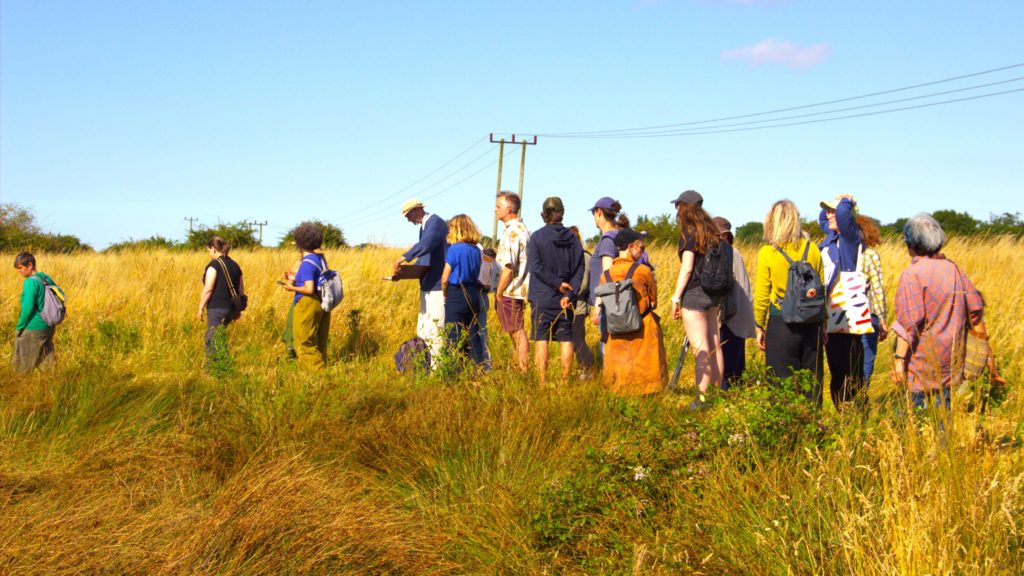
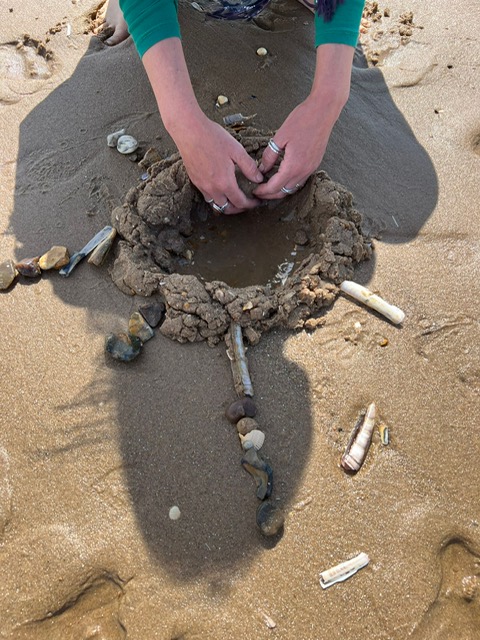
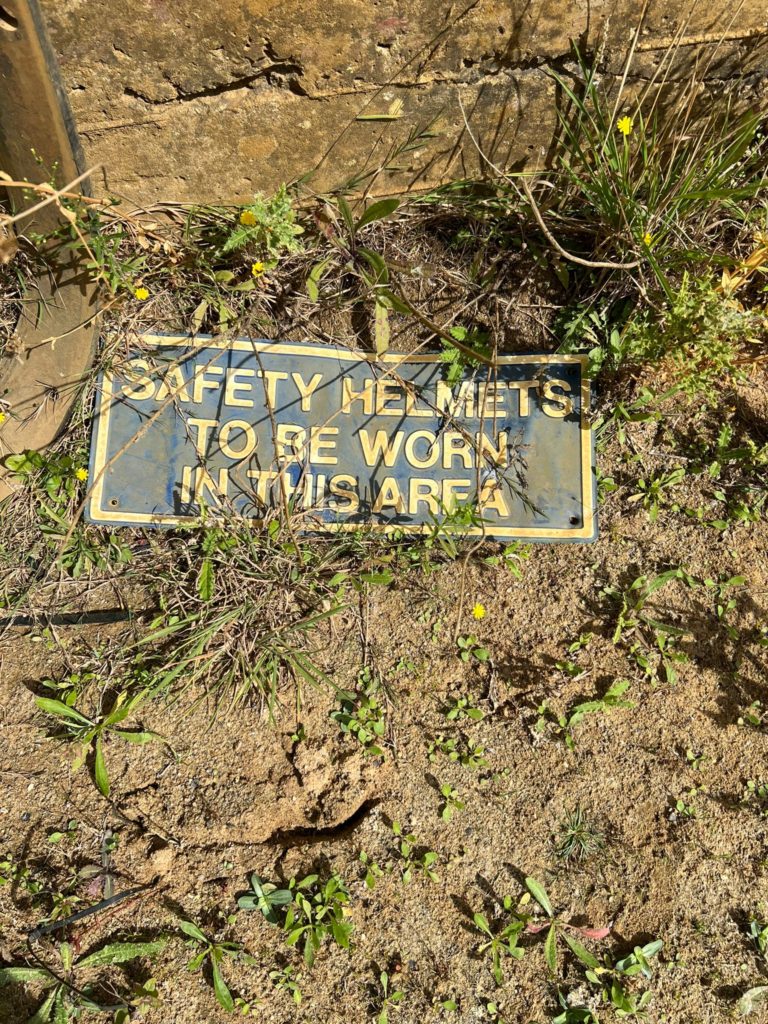
Above left to right; Helen Kilbride photo; Julia@neometa.art photo, Kelly Hill photo
Fluid Earth: summary research questions
Here are some of the questions we are posing:
How can we connect environmental issues with identity politics?
How can we build bridges and have dialogues with diverse communities to consider the future of the planet?
How can artists, art works and artful events stimulate greater public awareness and empathy with environmental issues?
What could diverse perspectives on nature recovery look like?
How can onlookers and audiences become active participants?
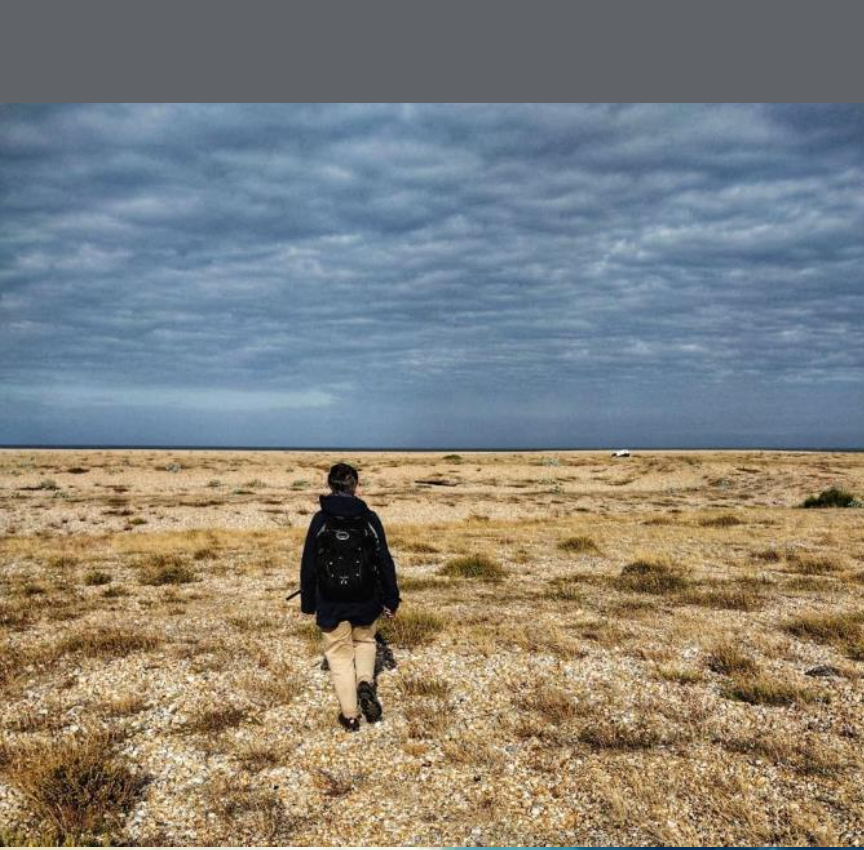
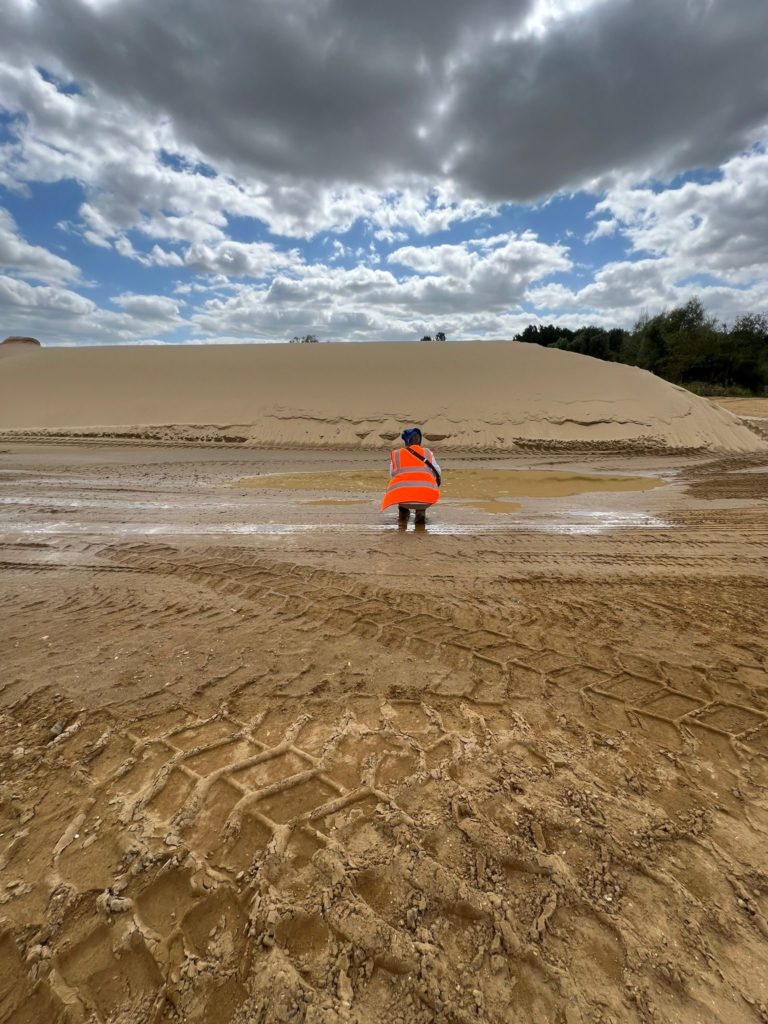
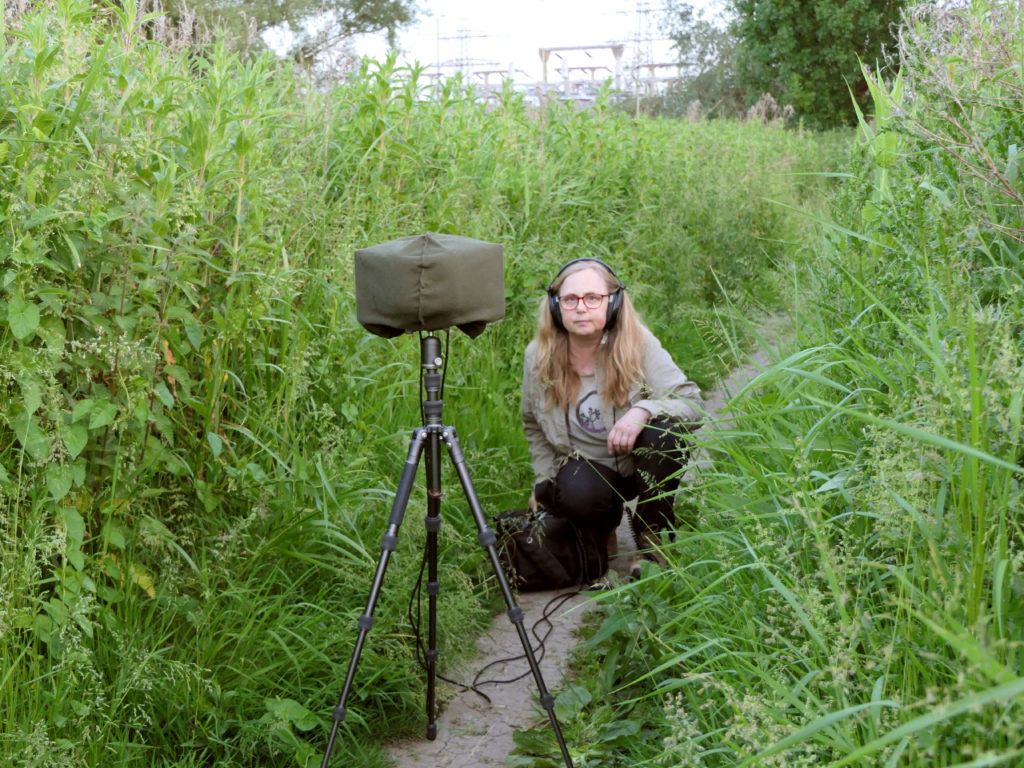
Above, left to right: Helen Kilbride photo, Kelly Hill photo, Sophie Marritt photo.
Residency Benefits
Everything that Groundwork Gallery does is about connecting art and environment and making that more evident and powerful. You will be part of that. One of the main benefits is the sharing of resources and skills that takes place across all the participants, between venues and hosts, expert guides, and all the participating artists. In previous years this has been especially appreciated and each year everyone has formed a strong bond.
We are working with a growing group of residency host partners and advisers. Our aim is to create a network between us of resident artists, past and present, hosts, and advisers, so that together we can strengthen our practice and have a growing effect on the way we see the resources around us. Last year we launched GroundWork NetWork and many of our partners as well as a wide range of creative environmental practitioners and organisations are represented there and can apply to be part of it.
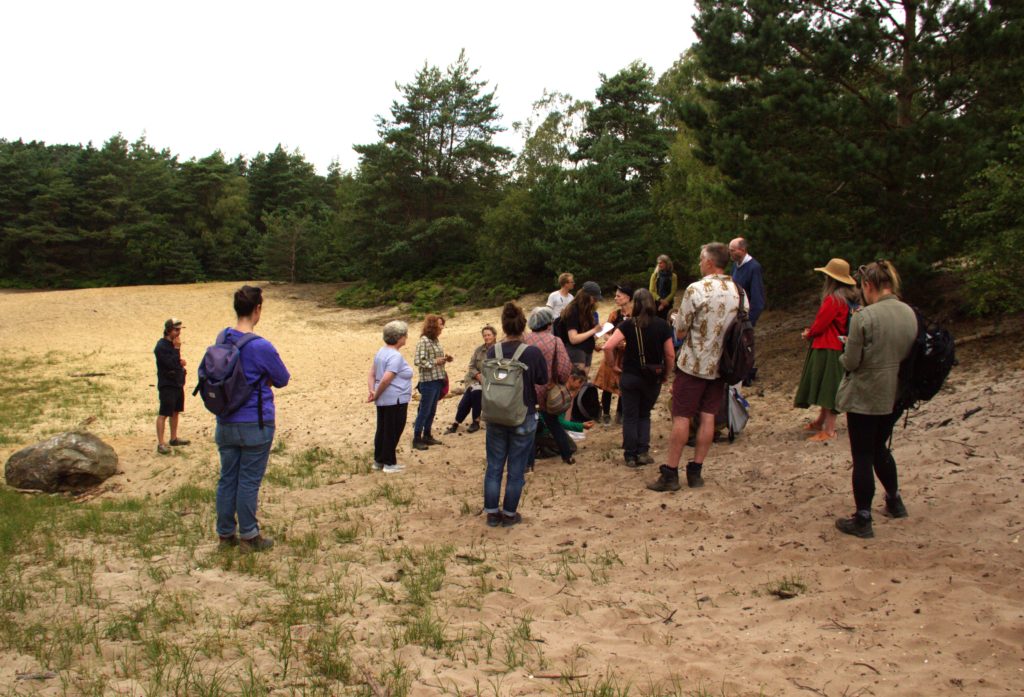
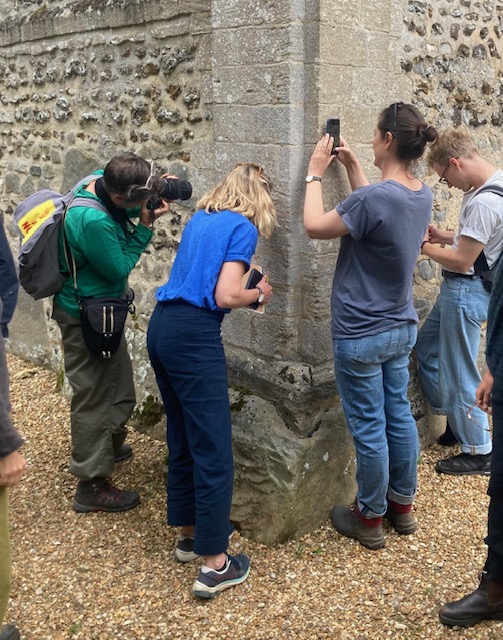
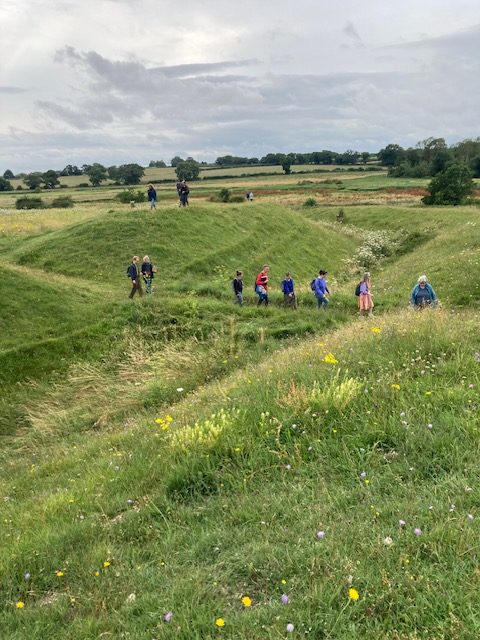
Above left to right: Helen Kilbride photo at Leziate sands; Veronica Sekules photos, Castle Rising church; Warham Camp
Research week
What is special about this residency is the shared experience of field trips during the research week. As it was last year, we are making this a compulsory element, where we all explore local resources in the company of our expert advisers over the week of 4 – 9 August. We also all come together for meals and discussions at various points during the summer. Everyone has a chance to show selected results together at GroundWork Gallery’s project exhibition
Exhibition
Alongside the residency period from 4 August to 12 September there will be an exhibition in the gallery Ground Water, featuring artists from the 2024 residency. It is followed by the Fluid Earth exhibition from 4 October to 13 December, for which each resident artist will be considered.
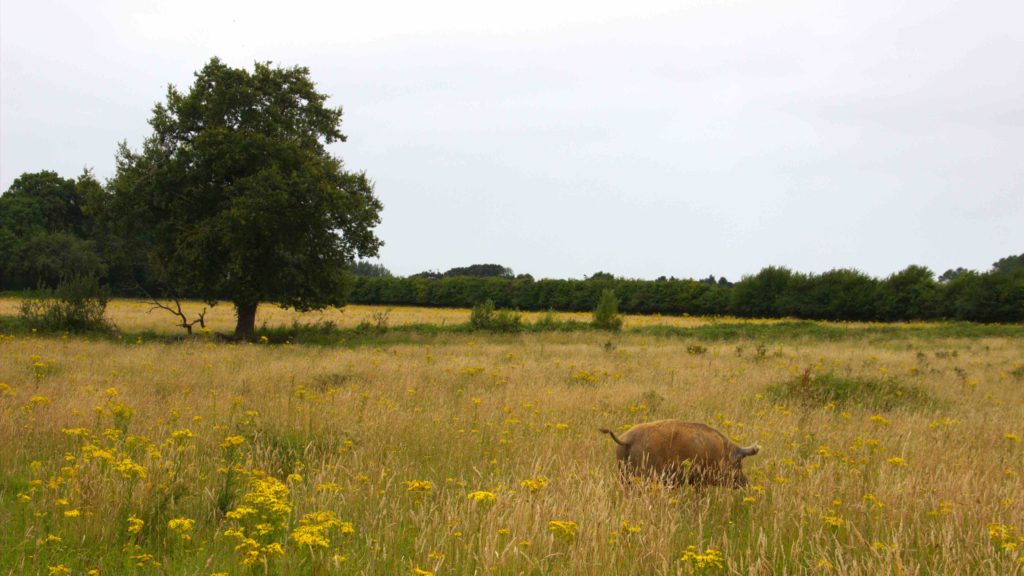
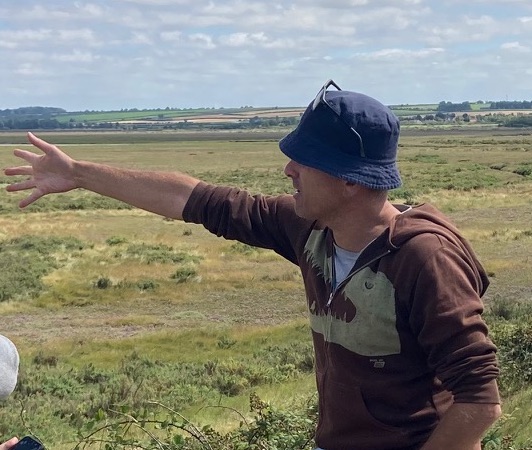
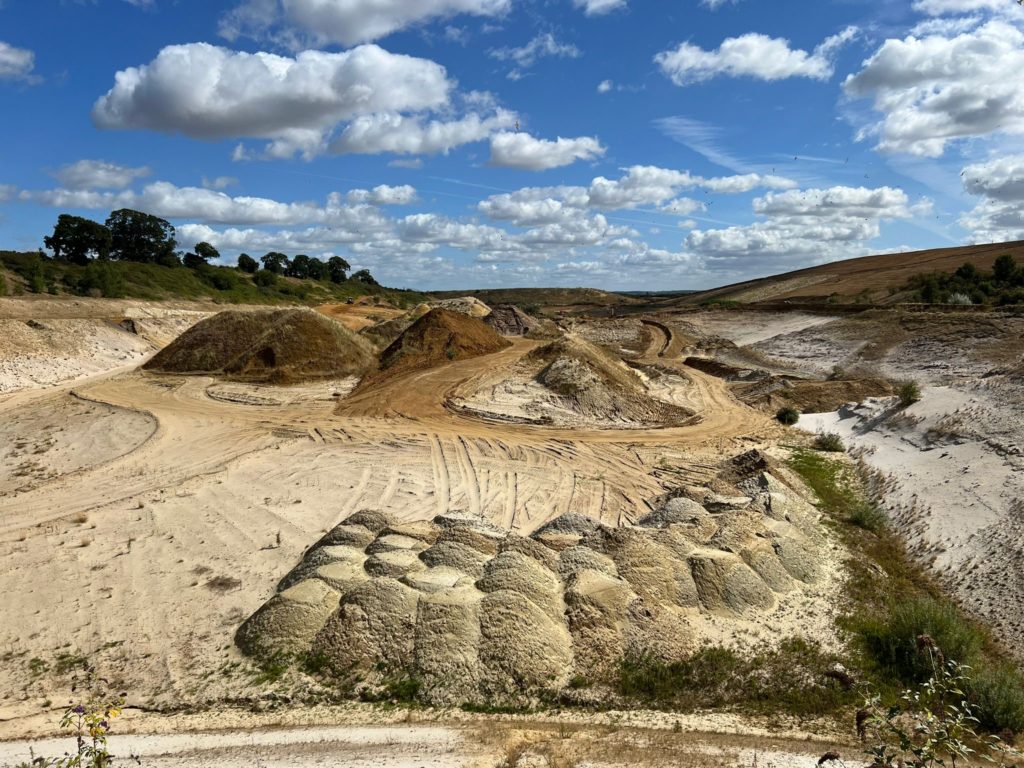
Above left to right: Helen Kilbride photo, Wild Ken Hill; Nick Acheson talking at Holme Dunes; Kelly Hill photo, Norfolk quarry.
The Norfolk context
Considering our location in Norfolk, we prefer artists to make use of the experience in the local area in their work, but it is not an essential requirement.
Because of the particular geography and ecology of this part of Norfolk, we have been absorbed so far by examining the local landscape and its resources for extraction. See previous Extraction project pages for our summaries. We are beginning now to look in more detail at waterways, specifically the rich but endangered chalk rivers of Norfolk, and at the coast-line and its fragile ecology. But our theme this year need not be restricted to landscapes – any approach to the concept of fluid earth will be considered
Application process
Deadline Sunday 6 April 2025
Complete the residency application on this google form
https://docs.google.com/forms/d/e/1FAIpQLScYERUw7U0J34JW8p9JDi_Tsg5GT3W0yWppx0G4fpjPtq8-jA/viewform
Provide 4 supporting images in a separate pdf, clearly indicating your name and identification for the images
Return the pdf with images, heading ‘Residency Application’ to – mail@groundworkgallery.com
Only use the form and keep within word limits, no other attachments will be considered
Complete this google form application and send images by Sunday 6th April 2025
On-line interviews for shortlisted candidates will be carried out on 14th, 15th, 16th April
All applicants must fill in this form and submit on-line. Four Images clearly identified on PDF to mail@groundworkgallery.com
GENERAL NOTES
For all chosen artists the residency includes a research week based in King’s Lynn, followed by 10 days production residency based at 1 of the 3 participating sites. The emphasis of this second phase will differ, depending on location.
Application for residency is also open to Associate artists based in East Anglia, not needing accommodation. In all other respects, Associates will be part of the cohort for the residency, joining in with our excursions, events and discussions.
Locations
· There are 3 residency locations: The GroundWork Gallery, King’s Lynn; The Grange Projects, Great Cressingham and Broomhill, Reepham.
Further information on each site is below and in the guidance selected artists will receive. Facilities vary at each site. Both The Grange and Broomhill are rural with plenty of land. The Grange Projects has studio facilities and expect that artists will engage there in full studio practice. Broomhill has studio space at the edge of a SSSi wetland, and basic facilities for making. GroundWork is in town, accessible for public transport, on the edge of the Wash and a live-work space, where it is best to concentrate on small-scale work, film, research.
· As part of our assessment, we reserve the right to make the final decision about location, but we will try to accommodate your wishes if you have a strong preference.
Any questions?
See our FAQs here, or email mail@groundworkgallery.com
Sedgwick Museum of Earth Sciences: Research Partnership
We have an exciting continuing partnership with the Sedgwick Museum, University of Cambridge, who are making their extensive collections available to us – with the additional potential for artists to create mini-vignette exhibitions in some of their historic display cases.
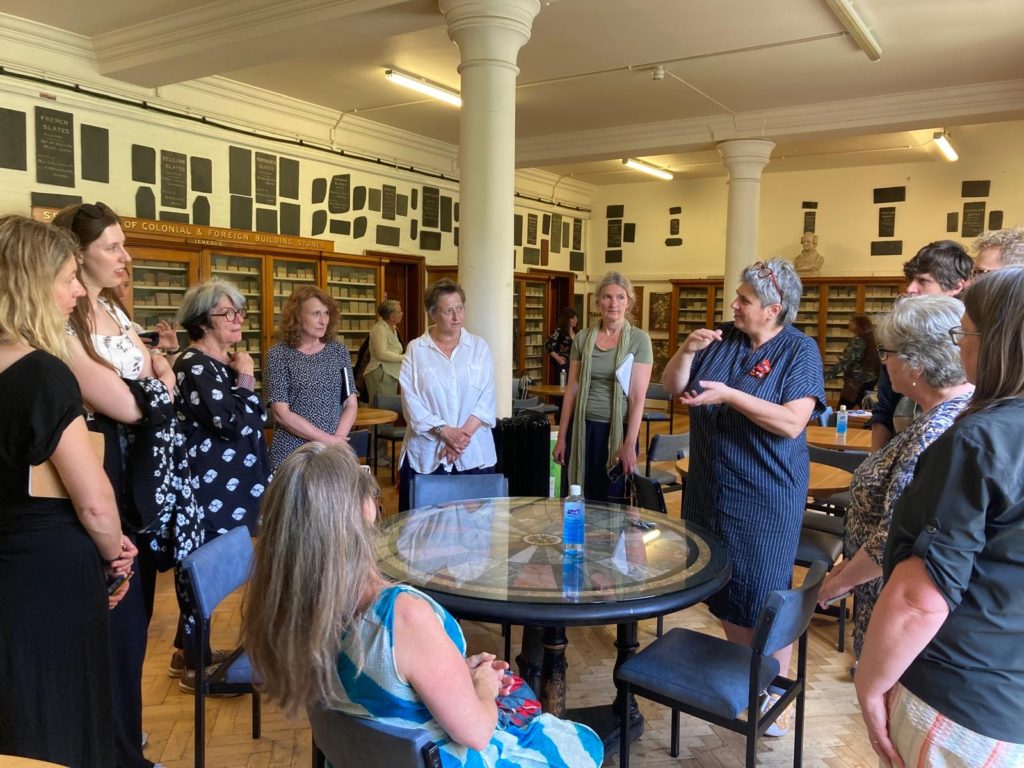
The Residency hosts: GroundWork Residency Consortium
There are three potential residency places, one relatively urban live-work space at GroundWork Gallery in King’s Lynn. It is fully accessible by public transport. One which is much more rural in the village of Great Cressingham, but with studio space, and other resident artists living communally. And Broomhill in Reepham which is completely rural with independent cabin – studios.
GroundWork Gallery (host Veronica Sekules)
Facilities: open-plan self-contained apartment on the middle floor within the gallery, consisting of- live-work space, kitchen, shower-room, bed space, balcony. Self-contained and private, but kitchen shared with the gallery during limited opening times (11-4 Wed to Sat). Clean-working studio space. Town centre location, but accessible by ferry and on foot/bike to the Peter Scott walk to the Wash. Bus and train public transport available to north coast, the Fens, Cambridge etc.
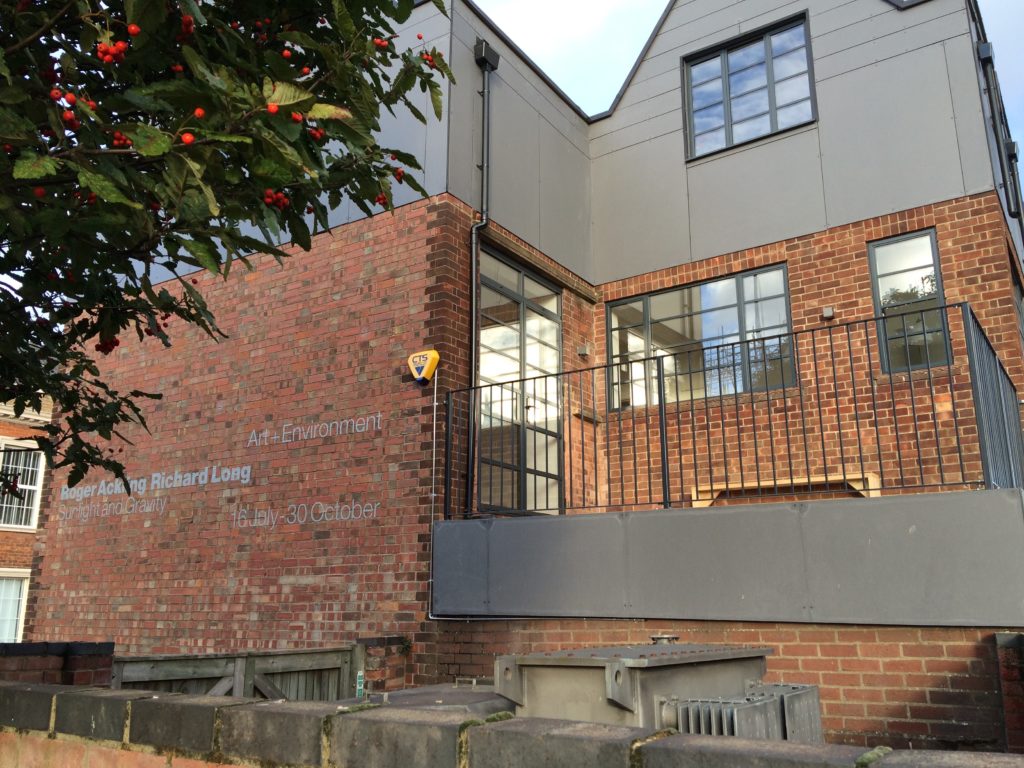
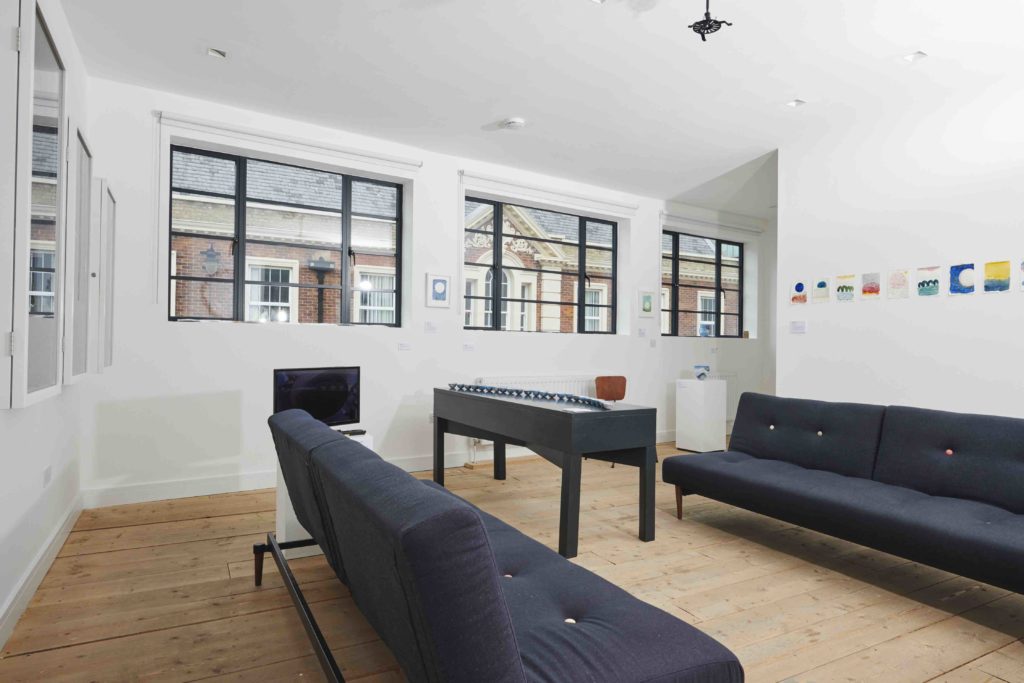
The Grange Projects, Great Cressingham (hosts John Plowman and Nicola Streeten)
Facilities: quiet location; open space grounds and landscape, and studio facilities ideal for making sculpture. Residents get a separate bedroom with otherwise communal living in a beautiful 18th century former rectory in a Norfolk village. (Access to a vehicle would be advisable for off site visits/meetings. However for non-drivers help with transportation will be offered if possible.’).
https://www.thegrangeprojects.org/
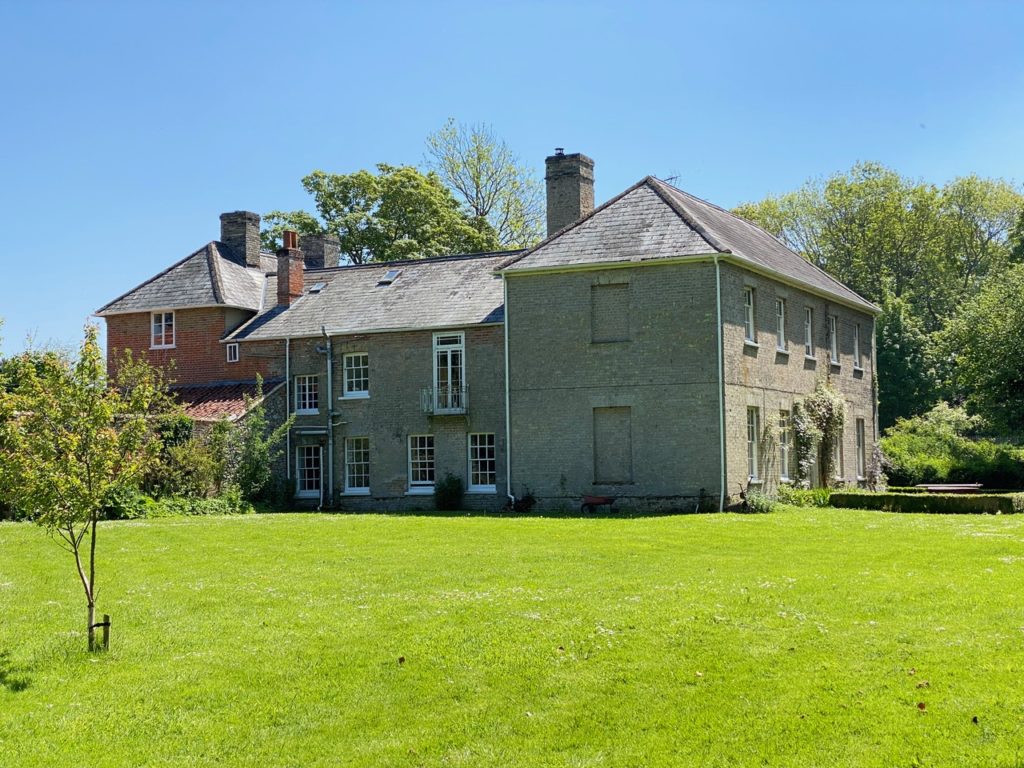
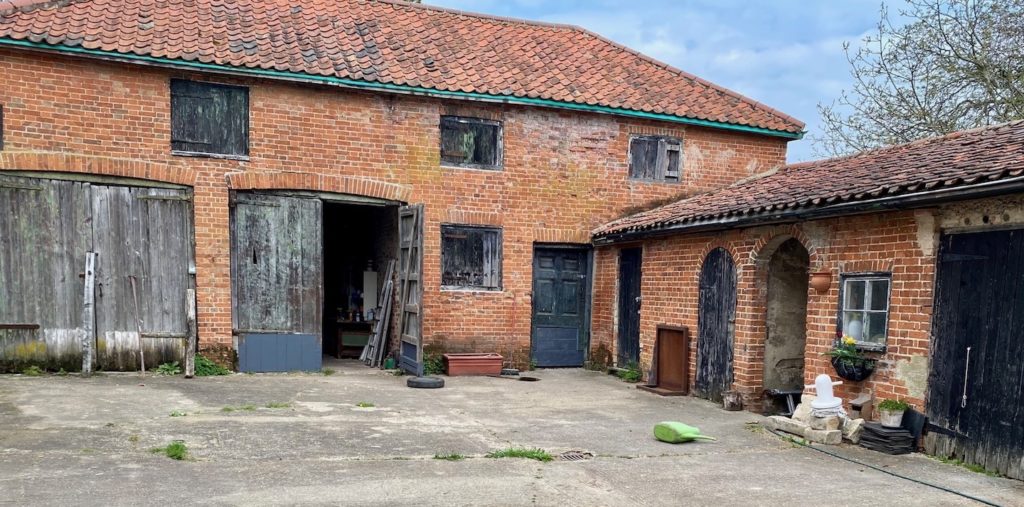
Broomhill, Reepham (host Helen Lindsay)
Facilities: self-contained studio space set within private and secluded land – consisting of a County Wildlife Site, wetland and woodland at the edge of a mid-Norfolk small town. Potential to live in the studio (facilities consist of veranda, double bed, heating, fridge, basic cooking, toilet a short walk from studio) or be hosted within the house, sharing meals. (Independent transport needed ideally – limited bus service available)
